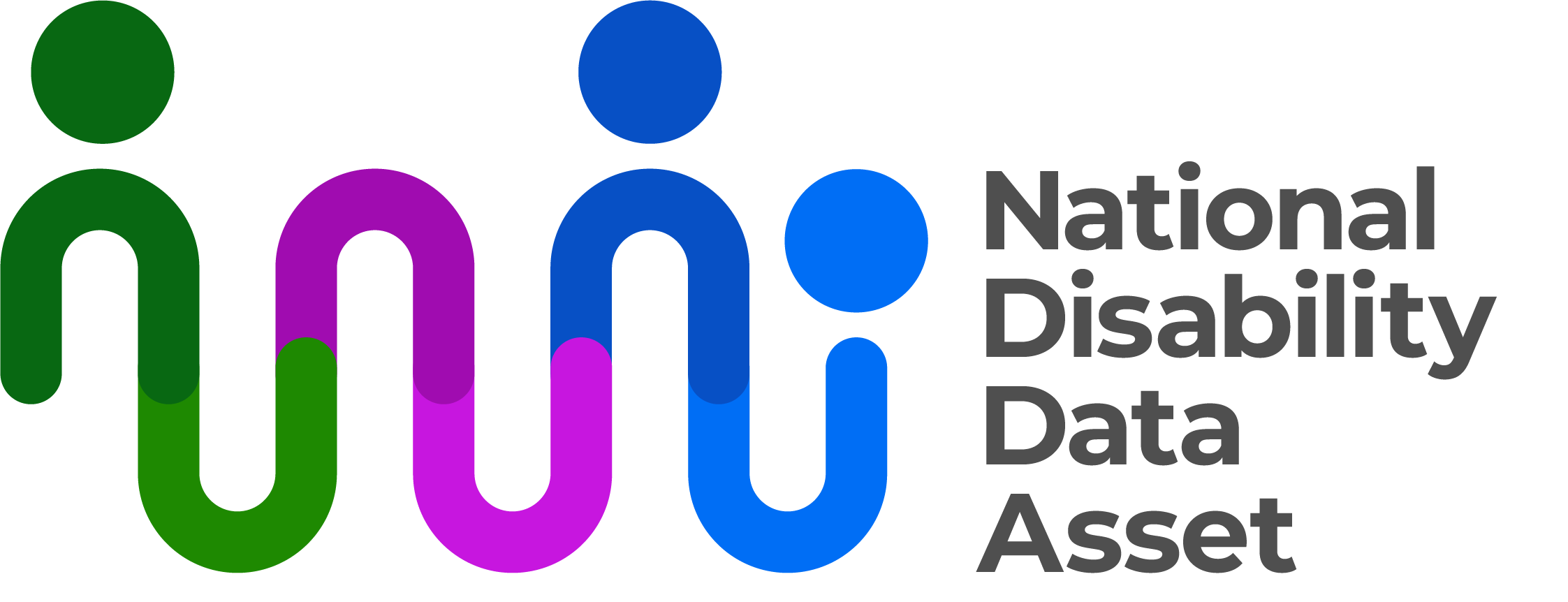
National Disability Data Asset
Summary of recommendations from the Scoping Panel
October 2024 report
What the Scoping Panel recommended
The Scoping Panel recommended that all future data development panels for the National Disability Data Asset must consider how intersectionality affects people with disability. The future panels must also consider digital accessibility issues for people with disability.
The Scoping Panel recommended setting up 8 panels in the future.
1. Panel to improve data about the impact of intersectionality
This panel could give advice about new ways to break down data to better understand how intersectionality affects people with disability. The panel could suggest tools and techniques that researchers could use to break down data.
2. Panel to improve data about the Deafblind community
This panel could find gaps in the existing data about the Deafblind community. This panel could also suggest additional data that should be included in the National Disability Data Asset.
The panel could recommend an accessible tool to help find data that would support:
- Deafblind advocacy
- planning for services to better meet the needs of the Deafblind community.
3. Panel to improve data about children and young people with disability
This panel could provide advice on connecting datasets to help better understand the needs and experiences of children and young people with disability.
The Scoping Panel said that connecting data is important for:
- developing government services and policies
- advocacy
- providing evidence-based supports.
4. Panel to improve data about employment and income support
This panel could think about datasets that would help to better understand:
- employment issues for people with disability
- how to support people with disability to get a fair wage and financial security.
This panel could give advice on data about:
- segregated workplaces
- supported wages
- very small businesses and sole traders
- the impact of technology and automation.
5. Panel to improve data about accessible and affordable housing
The Scoping Panel said access to appropriate, accessible and affordable housing is one of the most pressing problems for people with disability in Australia.
This panel could consider better ways to bring data together about the housing needs of people with disability.
The panel could find more data about the housing needs of people with disability, such as:
- physical and sensory needs of people with disability
- segregated settings, like group homes
- residential care facilities.
This panel could also look at how well Australia is following the United Nations Convention on the Rights of Persons with Disabilities.
6. Panel to improve data about education and disability
This panel could give advice about connecting education data for people with disability. This includes data from the Australian Government, and state and territory governments.
The advice could help researchers to compare different types of education settings.
This includes segregated and mainstream:
- early childhood education
- primary school education
- secondary school education
- tertiary education.
The Scoping Panel said bringing together data and using consistent definitions is important. This will help researchers to analyse data to make meaningful comparisons and find trends.
7. Panel to improve data about neurodivergent people
This panel could create plans for collecting data and using consistent definitions in a way that is inclusive of neurodiversity. This panel could find gaps in the data that government agencies collect.
This panel could also share advice to government agencies about how to improve data collection for neurodivergent people.
This includes collecting better data about:
- the accessibility and efficiency of support services
- whether support services meet the needs of neurodivergent people.
8. Panel to improve data about people with intellectual disability
This panel could look at what information about people with intellectual disability is in national data.
This could help to connect information about:
- health
- education
- social services
- justice systems.
The panel could look into what data there is on violence, abuse and neglect. The panel could give advice on how this data might connect with data in the National Disability Data Asset. This would help to understand how violence, abuse and neglect affect:
- education for people with intellectual disability
- how well people with intellectual disability move from one stage of employment to another
- wellbeing of people with intellectual disability.
This panel could put together a report to show gaps in the data about people with intellectual disability in Australia. The report could also include recommendations that align with Australia’s Disability Strategy. This would make sure the views of people with intellectual disability and their advocates help to shape policies.